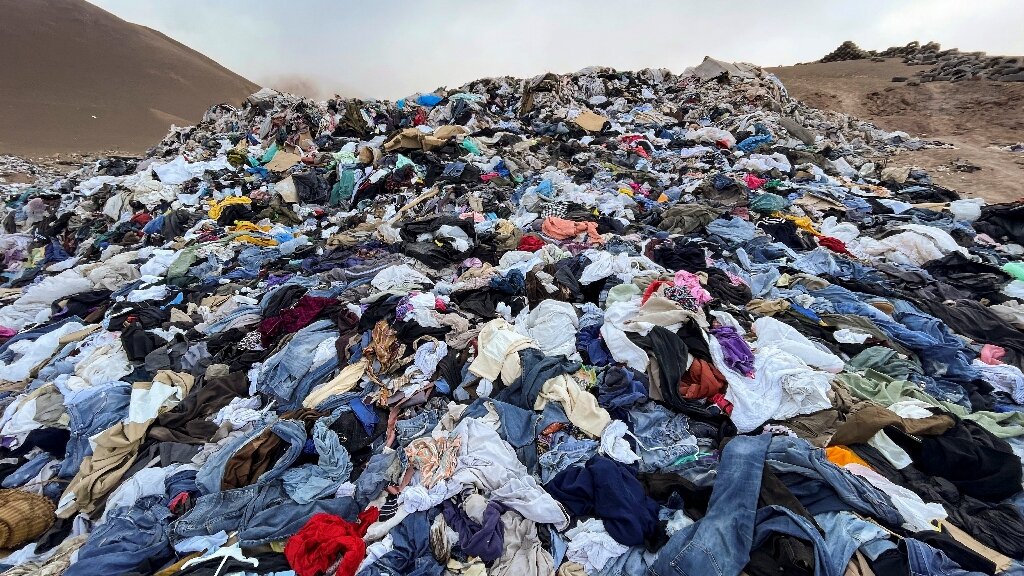 Recently, France became the first country to consider legal action against the fast fashion industry.
Recently, France became the first country to consider legal action against the fast fashion industry.
The lower House of Parliament has unanimously passed a bill targeting this industry, known for its extremely low prices and rapid production.
Let’s take a closer look at the toll fast fashion takes on the environment, and how French lawmakers are confronting the industry.
The Real Cost of Fast Fashion
Fast fashion took off in the 1970s when brands started outsourcing manufacturing to cut costs. They moved production from the US and Europe to Asia, where labor was cheaper—workers could be paid up to 20 times less.
Furthermore, factory production did not have to comply with environmental regulations, which were often less strict or nonexistent. Before the rise of fast fashion, clothing collections were released four times a year.
 By the 1990s, fast fashion began to dominate with companies like Zara, Gap, and H&M producing tens of thousands of new clothing items annually. Recently, Chinese companies like SHEIN and Temu have taken it to another level, producing over a million clothing items a year!
By the 1990s, fast fashion began to dominate with companies like Zara, Gap, and H&M producing tens of thousands of new clothing items annually. Recently, Chinese companies like SHEIN and Temu have taken it to another level, producing over a million clothing items a year!
This fast pace has severe environmental impacts besides labor abuses and exploitation. As a whole, the fashion industry constitutes 10% of global carbon emissions. The manufacture of clothes also consumes enormous amounts of water. According to the United Nations, the industry contributes to 20% of global wastewater. The use of dyes and other chemicals further pollutes the surrounding environment.
To reduce costs, fast fashion often uses inexpensive materials such as polyester, acrylic, and nylon. These materials are essentially plastic fabrics made from fossil fuels. Not only do they add to carbon emissions, but they are also non-biodegradable. When they are thrown into the washing machine, they leach microplastics into the water supply and the oceans.
The industry also encourages a throwaway culture, with clothes being discarded in landfills after just a few wears.
What Does France Propose?
 First, there will be a charge on each piece of clothing sold, starting at 5 euros and potentially rising to 10 euros by 2030. This fee can be up to half the price of the garment. The revenue will support sustainable businesses and fund public campaigns about garment care and waste management.
First, there will be a charge on each piece of clothing sold, starting at 5 euros and potentially rising to 10 euros by 2030. This fee can be up to half the price of the garment. The revenue will support sustainable businesses and fund public campaigns about garment care and waste management.
Secondly, fast fashion advertising will be banned and companies must disclose the environmental impact of their products to consumers.
Although the bill has passed the lower parliament, it still needs approval from the Senate. If it becomes law, it could significantly support sustainable fashion practices.
A Call to Action
While we wait for these changes to take effect, we can make a difference in our fashion choices. Opting out of fast fashion, taking care of our clothes, and reusing or donating old garments are steps we can all take to reduce our impact on the planet.
France is committed to sustainable fashion; they've already allocated 154 million euros to reimburse consumers for repairing clothes and proposed a European Union ban on exporting used clothes to decrease waste and hold fast fashion accountable.
So, what's in your closet? By choosing sustainable options and caring for what we wear, we can help turn the tide against fast fashion.
Sources: Guardian, BBC, EuroNews, Time, The Conversation, CNN, Britannica, The Atlantic








